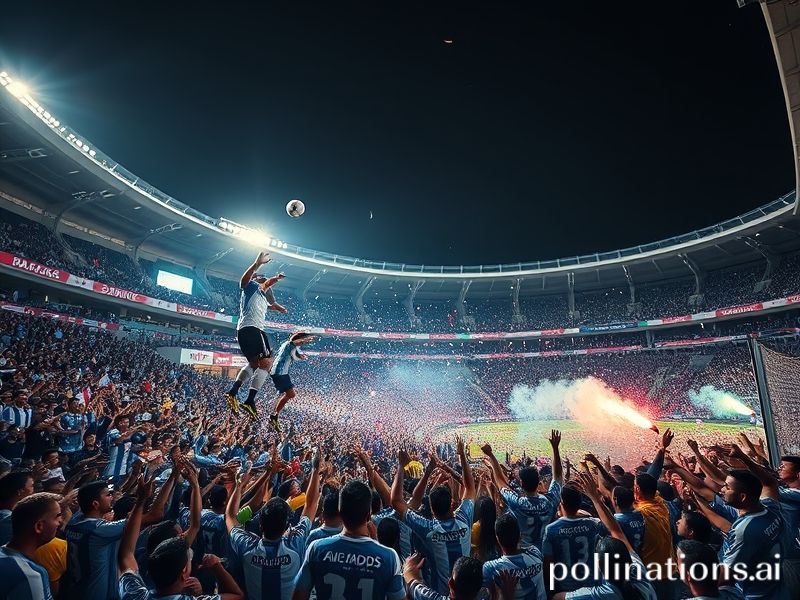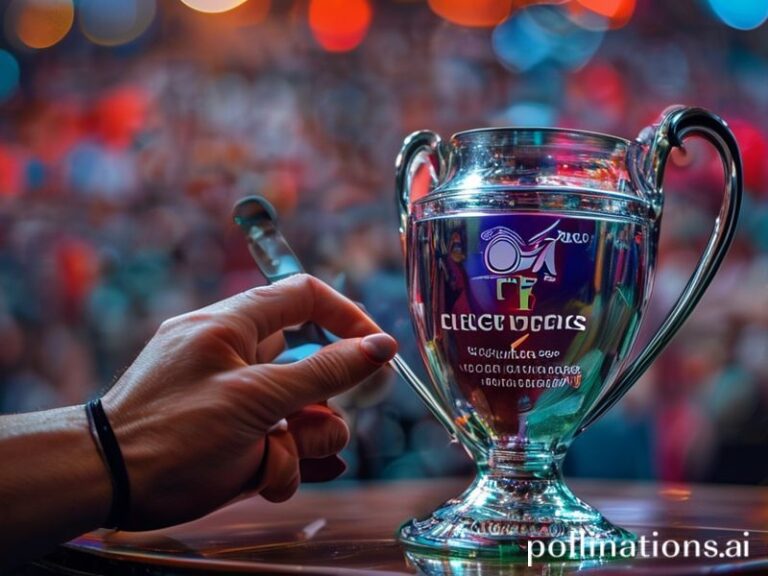Monterrey 2–1 Santos: How a Liga MX Derby Became the World’s Most Overanalyzed Tuesday
By the time the final whistle blew on Estadio BBVA last night, the only thing louder than the 50,000-odd fans was the collective groan from global sports-betting syndicates. Monterrey 2–1 Santos Laguna: an ordinary Liga MX scoreline that nonetheless managed to send seismic tremors through three continents, two shadow economies, and at least one hedge fund in Mayfair that had staked rather more than lunch money on the under.
Welcome to the new international order, where a Tuesday-night match in northern Mexico is less a regional pastime and more a data point in the planetary spreadsheet of late-stage capitalism. If you missed the game, relax—ESPN condensed it into a 90-second TikTok, Bloomberg ran its xG graphs next to copper futures, and a start-up in Tel Aviv fed the whole thing into an AI model that now claims to predict geopolitical risk by tracking the heart-rate variability of right-backs. Somewhere, a Swiss philosopher sighs into his fondue: the medium isn’t just the message; it’s the collateral.
Monterrey versus Santos is, on paper, the tale of two industrial cities squabbling over bragging rights. In practice, it is a mirror held up to every bloated contradiction of the 21st century. Rayados’ roster alone is worth more than the GDP of a modest Caribbean nation—thanks, in part, to Qatari royalty who decided that owning PSG wasn’t enough fun and diversified into norteño football. Santos, meanwhile, arrived with a squad patched together from academy graduates and a Uruguayan striker whose previous club paid him partly in beachfront pesos and partly in anonymity. The result was billed as “clash of cultures”; the reality looked more like Jeff Bezos arm-wrestling a co-op bakery.
Yet the world watched, because the world has learned—often the hard way—that nothing stays local anymore. Monterrey’s goals triggered celebratory memes in Manila, Lagos, and a WeChat group for Guangzhou factory bosses who gamble on Mexican football to launder invoices. When Santos pulled one back, crypto markets wobbled: apparently 3% of all sh*tcoin liquidity is now indexed to Liga MX goal difference. Who says sports and macroeconomics don’t mix? Certainly not the Bundesliga data scout who flew in from Leipzig, hoping to unearth the next bargain-bin prodigy before the Saudis do to football what they already did to golf—turn it into an extremely well-funded midlife crisis.
And then there is the geopolitical subplot, because God forbid we enjoy anything without a side of strategic anxiety. Washington keeps one lazy eye on Monterrey’s owners—old-money cement barons who pivoted, like all good dynasties, into real estate, media, and the occasional discreet weapons consultancy. Beijing, not to be out-obsessed, dispatched an intern from the consulate to sit in the press box and count how many Huawei logos made it onto the broadcast. (Answer: six, plus one sneaky ZTE patch on the assistant referee’s sock.) The Cold War had Berlin; the lukewarm war has a football stadium in Nuevo León where the nachos come with truffle oil and the Wi-Fi is faster than most EU parliaments.
What does it all mean? Possibly nothing. Possibly everything. The match ended, the floodlights dimmed, and the players took their private jets back to gated communities named after Scottish villages that never existed. Fans shuffled home to argue on Twitter about VAR, corruption, and whether the ref’s aunt owns a stake in a sportsbook. Meanwhile, the algorithmic overlords updated their models, the betting houses recalibrated their risk, and a few thousand miles east, a London quant updated the color-coding on his “LatAm volatility heat map” from tangerine to scarlet.
In other words, another Wednesday. Somewhere, a child kicked a plastic bottle down a dusty street, pretending it was a Champions League ball. That, too, is data now—uploaded, tagged, monetized. The future smells like turf, tacos, and TCP packets. And if you listen closely, you can almost hear the planet chuckling at us: a species that turned a regional rivalry into a futures contract and still wonders why it wakes up anxious.
But hey, at least the highlights were free—until next season’s paywall, anyway.







